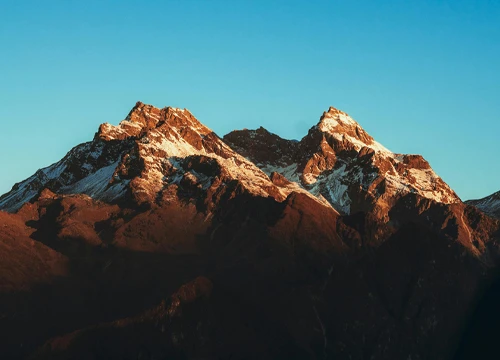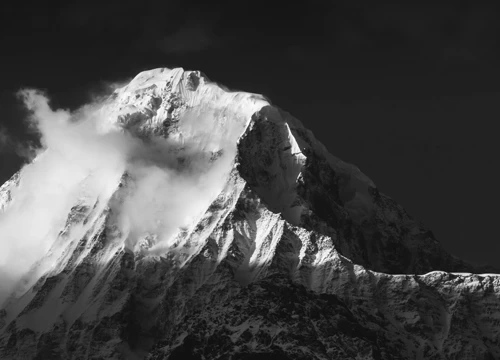Understanding the Importance of Tipping
Tipping is a customary practice in many countries around the world, and the Everest region is no exception. It is important to remember that guides and porters rely on tips as a significant part of their income. Their hard work and dedication to ensuring your safety and comfort during the trek deserve recognition and appreciation.
Moreover, tipping provides an opportunity to support the local economy. The Everest region, despite its natural beauty, is a challenging place to live and work. By tipping generously, you not only show gratitude to your guides and porters but also contribute to the economic well-being of the local communities. Your tips can help improve the quality of life for these individuals and their families.
Factors to Consider When Determining the Tip Amount
When deciding how much to tip your guides and porters, it is essential to take several factors into consideration. These factors can help you determine an appropriate amount that reflects your appreciation for their services and aligns with the local customs and economic conditions.
The duration of your trek is an important factor. Longer treks usually involve more physical exertion and demands on the part of the guides and porters. If you are embarking on a multi-week trek to Everest Base Camp, for example, it is common to tip more than you would for a shorter trek.
The difficulty level of the trek is another aspect to consider. Some treks in the Everest region, such as the Three Passes Trek, involve challenging terrains and higher altitudes. Guides and porters who accompany you on such treks may require additional expertise and effort. Taking this into account, you might want to tip them more generously.
Additionally, the size of your group can influence the tip amount. If you are traveling with a larger group, the workload for the guides and porters may be divided among them. In such cases, it is customary to tip slightly less per person compared to smaller groups.
Tipping Etiquette for Guides in the Everest Region
Guides play a crucial role in ensuring your safety, providing valuable information about the region, and helping you navigate the trek successfully. Tipping your guide is a way to acknowledge their expertise and the effort they put into making your trek memorable.
In the Everest region, it is customary to tip your guide at the end of the trek. It is recommended to present the tip personally, expressing your gratitude for their guidance and assistance throughout the journey. This personal touch adds an extra layer of appreciation and allows you to have a brief conversation, sharing your experiences and feedback.
The generally accepted guideline for tipping guides in the Everest region is around 10-15% of the total cost of your trek. However, this can vary depending on the factors mentioned earlier. If your guide has gone above and beyond to ensure your safety and comfort, or if you have had an exceptional experience, you might consider tipping more generously. Conversely, if you were dissatisfied with the service provided, you might adjust the tip amount accordingly.
Tipping Etiquette for Porters in the Everest Region
Porters are the unsung heroes of the Everest region. They carry heavy loads, often exceeding their own body weight, to ensure that you have all the necessary supplies and equipment during your trek. Tipping your porters is a way to recognize their strength, endurance, and hard work.
Similar to guides, it is customary to tip your porters at the end of the trek. As with guides, presenting the tip in person allows you to express your gratitude directly and have a brief interaction to show your appreciation.
The recommended tipping amount for porters in the Everest region is around 5–10% of the total cost of your trek. However, like with guides, this can be adjusted based on the duration and difficulty of the trek, the size of your group, and the level of service provided by the porters.
Recommended Tipping Amounts for Guides and Porters
To provide you with a clearer idea of how much to tip your guides and porters in the Everest region, here are some recommended tipping amounts based on the total cost of your trek:
For a trek costing $1000 or less, consider tipping your guide around $100-150 and your porter around $50-100 per person.
For a trek costing between $1000 and $2000, consider tipping your guide around $150-250 and your porter around $75-150 per person.
For a trek costing more than $2000, consider tipping your guide around $250-350 and your porter around $150-200 per person.
Remember, these amounts are just guidelines. You may adjust them based on the factors mentioned earlier and your personal satisfaction with the services provided.
The Impact of Tipping on the Local Economy
Tipping goes beyond expressing gratitude and supporting individual guides and porters. It has a significant impact on the local economy as well. The Everest region heavily relies on tourism as a source of income, and tipping plays a crucial role in sustaining the livelihoods of those involved in the trekking industry.
The money earned through tips helps improve the standard of living for guides and porters, their families, and the wider community. It allows them to access better education, healthcare, and other essential services. By tipping generously, you contribute to the overall development of the region and help create a sustainable tourism industry that benefits both travelers and locals.
Other Ways to Show Appreciation for Guides and Porters
While tipping is an important way to show appreciation, there are other ways you can express your gratitude to your guides and porters in the Everest region. These additional gestures can further strengthen the bond between you and the individuals who accompany you on your trek.
One way to show appreciation is by writing a positive review or testimonial about your guide and porter. This feedback can be shared on travel websites, social media platforms, or directly with the trekking company you booked with. These reviews not only help future travelers make informed decisions but also serve as a recognition of the excellent service provided by your guides and porters.
Additionally, you can offer small gifts or tokens of appreciation, such as souvenirs from your home country. These gifts can be a meaningful way to show your gratitude and create lasting memories for your guides and porters.
Common Misconceptions about Tipping in the Everest Region
There are a few common misconceptions about tipping in the Everest region that are worth addressing. One misconception is that tipping is expected only from wealthy travelers. In reality, tipping is a customary practice, regardless of your budget. It is the gesture that matters, not the amount.
Another misconception is that tips should only be given at the end of the trek. While it is common to provide the bulk of the tip at the end, you can also offer smaller amounts throughout the trek to show your appreciation for specific acts of kindness or exceptional service.
Lastly, some travelers may assume that tipping is unnecessary if they have already paid a significant amount for the trek. However, it is important to remember that the trekking company and the guides and porters may not receive the full amount paid for the trek. Tipping ensures that the individuals who directly contributed to your trek receive a fair share.
Conclusion: The Value of Tipping in Creating Positive Experiences for Both Travelers and Local Communities
Tipping your guides and porters in the Everest region is not only a way to show gratitude but also a means to support the local economy and improve the lives of those who make your trek possible. By considering the factors mentioned earlier and following the recommended tipping amounts, you can ensure that your gestures of appreciation are meaningful and respectful of the local customs.
Remember, tipping is just one aspect of creating a positive experience for both travelers and local communities. Along with tipping, treating your guides and porters with respect, practicing responsible trekking, and being mindful of your impact on the environment can contribute to a more sustainable and enjoyable trekking experience in the Everest region. So, as you embark on your adventure, don't forget the importance of tipping and the ripple effect it can have on the lives of those who accompany you on your journey of a lifetime.







